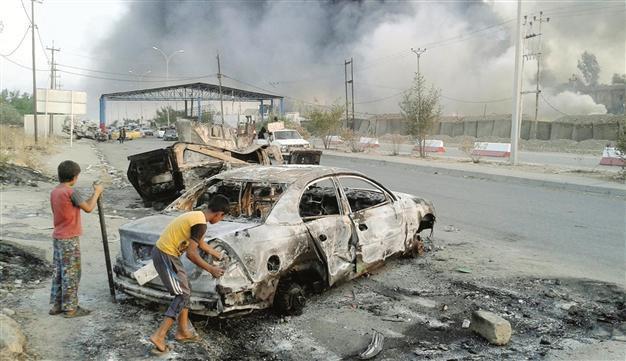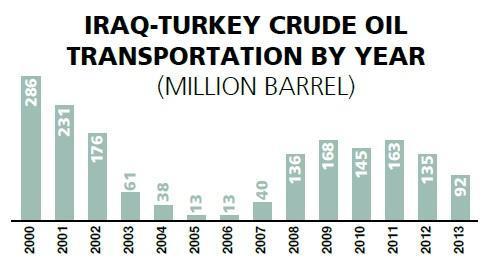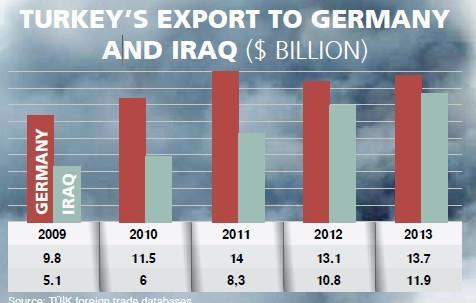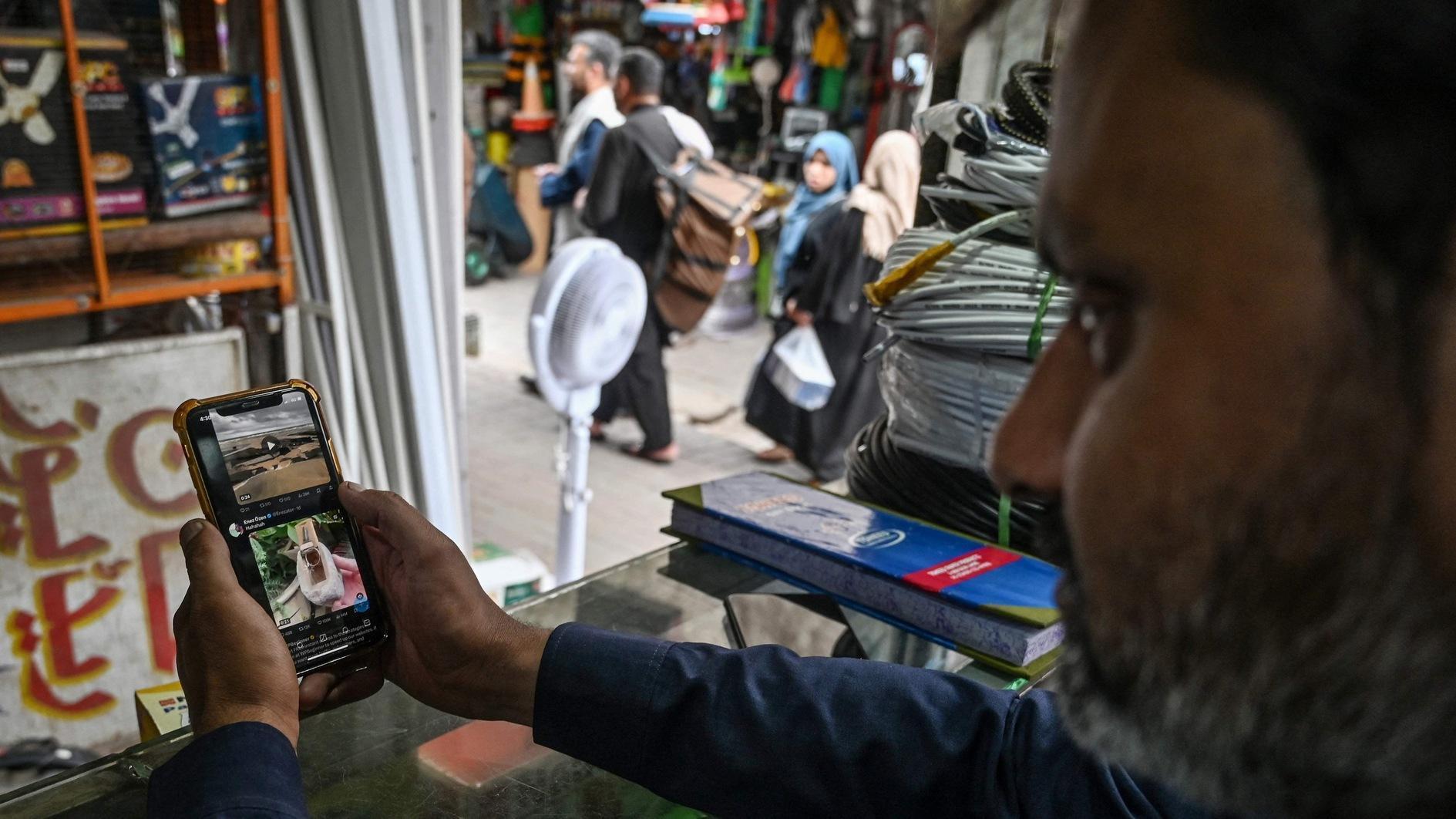Cost of Iraq on Turkey’s economy raises concerns
MUSTAFA SÖNMEZ - mustafasnmz@hotmail.com

Civilian children stand next to a burnt vehicle during clashes between Iraqi security forces and al-Qaeda-linked Islamic State in Iraq and the Levant (ISIL). The violence in Iraq poses risks for the Turkish economy, which has developed strong economic ties with its neighboring country over the past few years. REUTERS photo
While the effects of the storm in Iraq on the Turkish economy are beginning to be felt, their consequences in the future are also causing concern. The effects of the Islamic State of Iraq and the Levant (ISIL) earthquake on Turkey’s domestic and international economic equilibriums are expected to increase. The negativity being experienced – and that will be experienced – is related to Turkey’s regional position, as well as Turkish-Iraqi relations.Exports…
On top of the negativities come the possible problems that might be experienced in Turkey’s exports to Iraq. Together with Germany, Iraq is Turkey’s most important export market. From year to year, Turkey’s exports to Iraq have continuously increased. In 2009, exports that were $5 billion went up to almost $12 billion in 2013. This is a figure close to Turkey’s biggest export partner Germany, whose export shares were 13.7 billion in the same year.
The delay of normalization in Iraq would mean a blow to Turkey, especially in 2014 as exports are vital for Turkey. The significant shrinkage in the domestic market has forced Turkey to export, as two thirds of the country’s growth rate of 4.23 that was recorded in the first quarter stemmed from exports.
Turkey’s exports to Iraq are predominantly to the Kurdish Regional Administration. It is a region that ISIL has not attacked yet, but it is nevertheless under threat. Consumption and domestic demand show an inclination that they might shrink, which might decrease Turkey’s demands.
 Pipelines…
Pipelines… The transportation of crude oil through pipelines is another important link in the relations with Iraq’s economy. The BOTAŞ pipeline is expected to be affected by the current war and the income gained is expected to decrease.
Oil transportation from Iraq started in 1976. The first tanker was loaded in 1977. Its capacity was doubled with various projects and in 1987, a capacity of 70.9 million tons per year of crude oil transportation was reached.
The pipeline inside Turkey belongs to BOTAŞ. The management of the pipeline through the telecommunication system that was installed and the main control centers in both countries is automatically controlled.
Crude oil transportation activity, which fell considerably during the occupation of Iraq by the U.S., accelerated in later years. In 2009, it went up to 168 million barrels. In 2013, 12.7 million tons (91.9 million barrels) of crude oil were transported through this line.
Contracts…
It has also been stated that construction activities would be delayed – especially in the north of Iraq – due to the current conflict and that major financial losses may occur. As of the end of 2013, a total of 824 projects have been undertaken by Turkish construction firms, which is valued at around $19.5 billion.
Within the framework of the 2010-2014 Development Plan, the government has allocated $170 billion for 2,700 projects. Also, the government was planning to construct 2 million units for low-income citizens. The 17 cement factories run by the state in Iraq can only meet one fifth of the total cement demand (6 million tons annually). To meet the demand, it planned that the existing cement factories would be renewed and new factories would be constructed. The Industry and Mining Ministry had given permits to build 19 new cement factories worth a total of $3 billion.
Among those areas that appeal to the investor most are the public, water, electricity, sewage treatment, bridges, highways, development and construction sectors. Also, the building of new gas turbines is being questioned. The part of this project that is worth $900 million was given to three Turkish firms: Çalık Enerji, Enka İnşaat and Eastern Lights.
The prolongation of the war would mean the shelving of projects that were undertaken or damage to those projects where a lot of preparation work had already been undertaken.
 Oil prices…
Oil prices… The effect of the war, on rising oil and natural gas prices, will bring new costs, if not in the near future in the medium term for energy importer Turkey. Price hikes in energy will have an increasing effect on the inflation rate.
Iraq’s share in Middle East oil production is estimated to be 10 percent.
After Qatar, the country that has the highest oil exportation capacity in the region is Iraq.
Iraq’s share in natural gas production in the region is nearing 3 percent. A major part of its oil exportation is conducted through al-Basra (Mina al-Bakr) and Khor al-Amaya terminals.
Problems in oil production and exportation have already created an upward effect in global crude oil prices. Turkey, as an energy importer, may be affected negatively by these price hikes.
Capital inflow…
With the war intensifying, a halt in capital flows into Turkey, especially from the West, and even withdrawals, have started to be felt. The country’s risk premium has suddenly increased. The exit of hot money that entered Turkey from the stock exchange as of April has started pushing foreign exchange rates upward. The dollar exchange rate saw 2.15 Turkish Liras. The current accounts data, which were released on June 12, showed that the capital inflow that halted in the first three months, restarted in April with $8.4 billion. As of mid-June when the war erupted, capital flow slowed down. This may mean the current account deficit, which reaches $4 to $5 billion monthly and the sum of debts due, may not be paid from the foreign currency reserve and “under the pillow” money. As a result, this may cause the foreign exchange rate to climb again, disrupting all equilibrium.
The capital flow, which was activated in April and May, switched to withdrawal with the Iraq storm, which will likely affect growth targets negatively.
Several sectors that export goods to Iraq – from food stuffs to durable goods, cement, iron and steel – may be affected negatively. Domestically, if foreign exchange rates increase, interest rates may need to be increased to prevent the climb. This would shrink the domestic demand. The housing sector would be negatively affected. Automotive and appliances would also suffer. Intentions of new investments would be postponed and this would negatively affect those who are waiting for business.
















